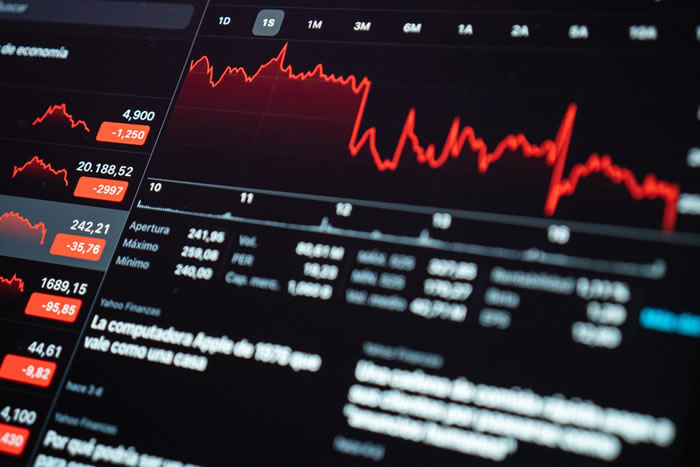Introduction
In recent times, we have witnessed fluctuations in the global economy, leading to a period of instability that has impacted both individuals and businesses. How to work through an unstable economy may seem daunting, but with the right strategies and a proactive approach, it is possible to thrive even amidst uncertainty. In this blog post, we will discuss how individuals and businesses can work through an unstable economy, by adopting financial planning, diversification, and flexibility.
1. Financial Planning and Budgeting
The importance of financial planning and budgeting cannot be overstated during an unstable economy. It is crucial for individuals and businesses to assess their financial standing, set realistic goals, and allocate resources efficiently.
a. Individuals: Start by creating a detailed budget that outlines your income, expenses, and savings. This will help you track your spending habits and identify areas where you can cut back. It is also essential to establish an emergency fund, which should ideally cover three to six months of living expenses. This fund will act as a financial cushion in case of job loss, illness, or other unforeseen circumstances.
b. Businesses: For businesses, it is vital to have a clear understanding of their cash flow and maintain a healthy balance sheet. Regular financial analysis helps identify trends, anticipate challenges, and make informed decisions. Cost optimization should be a priority, and businesses should explore ways to reduce expenses without compromising on quality.
2. Diversification and Multiple Income Streams
Relying on a single source of income can be risky in an unstable economy. Diversification is key to minimizing risks and ensuring financial stability.
a. Individuals: Explore opportunities to create multiple income streams. This could involve freelancing, starting a side business, or investing in dividend-paying stocks. The gig economy offers a myriad of options for those looking to supplement their income, from ride-sharing services to online tutoring.
b. Businesses: Diversifying product or service offerings can help businesses cater to a broader customer base and reduce dependency on a single revenue source. Businesses can also expand into new markets, either geographically or through digital channels, to tap into new customer segments.
3. Investing Wisely
Investing in a volatile economy can be challenging, but it is essential to make informed decisions and avoid impulsive moves.
a. Individuals: Focus on long-term investment goals and maintain a diversified portfolio. This could include a mix of stocks, bonds, real estate, and cash. Resist the urge to panic-sell during market downturns, as this can lead to significant losses. Instead, consider dollar-cost averaging, which involves investing a fixed amount of money at regular intervals, regardless of market fluctuations. This strategy can help mitigate risks and potentially result in better returns over time.
b. Businesses: Businesses should also be cautious with their investments during uncertain times. Prioritize projects with a higher probability of generating returns and postpone non-essential investments. Companies can also consider strategic partnerships or collaborations to share risks and leverage resources.
4. Continual Learning and Upskilling
In a rapidly changing economic landscape, staying relevant and competitive is crucial for both individuals and businesses in an unstable economy.
a. Individuals: Continually learning and upgrading your skills can make you more valuable in the job market and help secure your financial future. Pursue professional development courses, certifications, or online learning platforms to stay updated with industry trends and advancements.
b. Businesses: Invest in employee training and development to ensure your workforce is equipped with the skills needed to navigate a turbulent economy. A well-trained and motivated team can help businesses stay ahead of the curve and maintain a competitive edge.
5. Embracing Flexibility and Adaptability
Embracing flexibility and adaptability is crucial when working through an unstable economy. As individuals and businesses face unprecedented challenges, the ability to adjust and pivot becomes invaluable. Being open to new opportunities, exploring different industries, and adopting innovative approaches can lead to long-term success. Cultivate a growth mindset that encourages continuous learning and skill development to remain relevant and competitive. By staying agile, resilient, and adaptable, you can navigate economic turbulence and emerge stronger, better positioned to seize opportunities that arise during times of uncertainty.
Working Through an Unstable Economy
In conclusion, working through an unstable economy requires a combination of financial planning, diversification, wise investing, continuous learning, and adaptability. By being proactive and strategic in your approach, you can mitigate risks and foster financial stability. Both individuals and businesses should prioritize long-term goals while remaining flexible to navigate economic fluctuations. Embrace change, seek new opportunities, and cultivate resilience to thrive even in uncertain times. Remember, challenging economic conditions can also present unique chances for growth and innovation, allowing those who adapt to emerge stronger and more successful in the long run.
To learn more please reach out and connect with a consultant.


